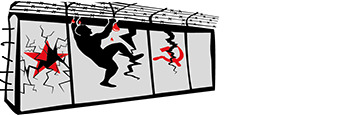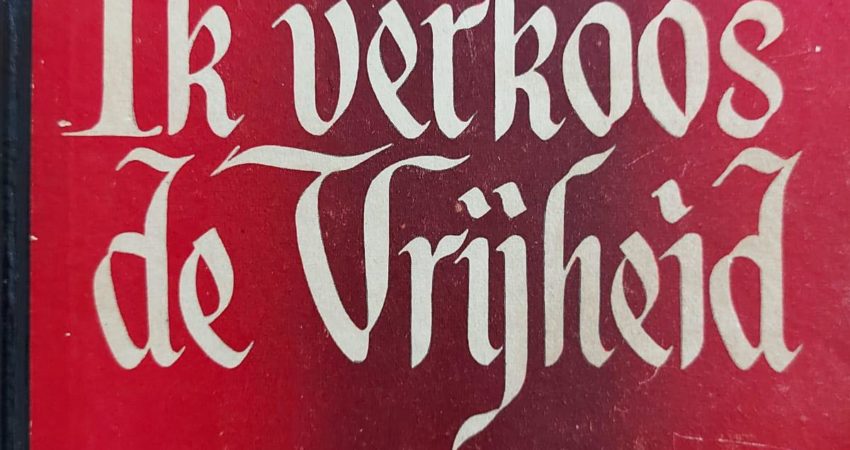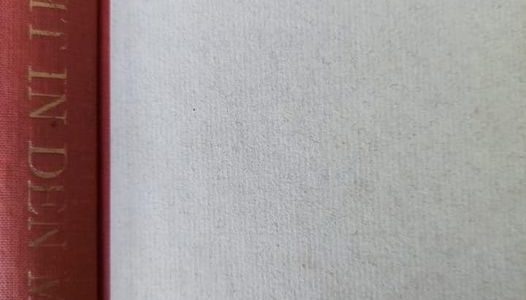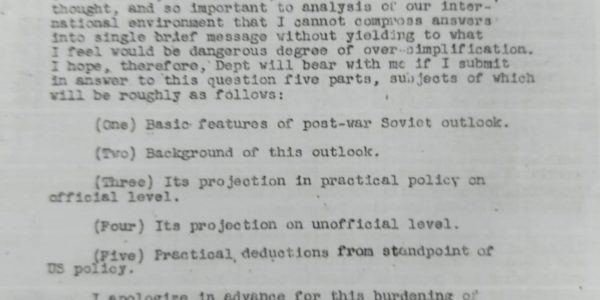Disclosures by an Experience Expert in 1946-47: Victor Kravchenko’s I Chose Freedom
By Patrick van Schie
In April 1944, a senior official from the Soviet Union’s “trade delegation” defected to the United States. Victor Kravchenko, an engineer, was tasked with Lend Lease deliveries during World War II to the Soviet Union – that was large-scale material support provided by the United States to its then ally – the metals that would already be supplied in American factories. Which also meant: to engage in economic espionage as much as possible. It was quite something if a Soviet citizen was allowed to go to “the main fortress” of capitalism. Kravchenko had therefore been questioned countless times beforehand about his life course and his political views. Above all, the NKVD (the predecessor of the KGB) had gone through his files thoroughly. The slightest inconsistency or slip of the tongue could have ended his journey, or worse. But Kravchenko was allowed to leave in 1943 and was therefore able to carry out a few months later his plan, which he had kept secret even from his wife (to protect her somewhat after his departure): defecting to escape the terribly oppressive regime in his country and to inform the free world about it in the form of a book.
That turned out to be a solid book by the way. It was published in English exactly 75 years ago, under the title ‘’I Chose Freedom’’. Editions in various languages followed. In 1947, an edition in Dutch was also published. The book became a bestseller. The author, who was threateningly pursued by Soviet spies in the US, was brought to trial in France by an obscure communist paper, allegedly because the book was said to contain lies. The communist magazine’s complaints were dismissed, but Kravchenko had a lot of hassle about it.
The Soviet Union and its communist accomplices in the West were committed to denigrating the author. The general public in the United States and other Western countries admired the Soviet Union so shortly after World War II, and quite a few Westerners believed in communist propaganda that a socialist sanctuary full of abundance and happy workers and peasants had been realized. Kravchenko’s book shed light on the bitter reality of a people held back, constantly spied on, and bruised by a tyrannical regime. Kravchenko was astonished to discover how great ignorance about this was in the West and how easy it was for many to swallow propaganda from and about the Soviet Union.
Anyone who criticized the Soviet system was invariably portrayed as “agent of imperialism”, “bourgeois”, “counter-revolutionary” and so on. Thus the Soviet Union and its fellow travelers also tried to portray Kravchenko after his defections. However, the story of Kravchenko was all the more credible because, as the son of a party-less [that was already very reprehensible to the communists] revolutionary who had been imprisoned under the tsars for ten years, he was of undisputed ‘proletarian’ descent. Kravchenko worked for ‘the revolution’ (the new communist regime) and had become a member of the Communist Party in 1929 at the age of 24. His father spoke to him about this in private (this was no longer possible in public in the late 1920s). His father had quickly realized that the new regime was worse than Czarism. In a discussion with his father, when Victor points to the new factories, mines and railways being built under communism, his father replies: “But revolutions are not made to get factories and railways; they are made for people. It is the rights and freedoms of human beings that matter. Without this, without human dignity, people are slaves, however industrialized their prison may be. ”
Son Victor became irritated by such discussions, but he knew deep down that his father hit the nail on the head. Nonetheless, he worked tirelessly as an engineer to build the industry. In the early 1930s he was commissioned in the Ukrainian countryside. There he saw with his own eyes what the struggle against the “kulaks” meant in the context of the collectivization of agriculture. Farmers with no more than a few heads of cattle were robbed of this, as well as of the grain they harvested. The party confiscated everything and anyone who hid something in order to at least feed his family was beaten and often deported. Once a granary, Ukraine was the scene of a massive famine.
It made Kravchenko doubt. The voice of his father gnawed in his head, who had told him never to be misled by the words and promises of revolutionary rulers, but always to look at the actual fate of ordinary people. To make sure the farmers were fit enough to bring in the crop, Kravchenko had allowed them some extra food. This was official theft from the collective. He was faced with an as yet kindly intended reprimand from his superior: “There is a life and death struggle going on between the peasants and our regime. This year was a test of our strength and their stamina. A famine has had to make them understand who is boss here. It has cost millions of lives, but collective farming will continue to exist today. We have overcome. I’m afraid your heart speaks louder than your mind, Comrade Kravchenko. If everyone were as soft-hearted as you, we probably wouldn’t have won this battle. ”
In this way the atrocities of the communist regime were always condoned. In the struggle for socialism, there was no “room for the hypersensitive” and certainly not for “weak liberal humanism”. When it came down to it, there was no room, Kravchenko, for friendship, love, or any positive human relationship either; the Party was above all else. And the Party, those were the decisions of the Politburo, and in particular those of one man: Stalin. Everyone had to implement these decisions without delay. Doubts or objections were perceived as criticism of the party, and this was soon branded as a counterrevolutionary activity or as “capitalist sabotage”. A serious offense.
After the murder of the Leningrad party chief Kirov at the end of 1934, the Great Terror broke out. Stalin began to wipe out party members en masse, from those who had played more prominent roles than he in the “October Revolution” (the coup by the Bolsheviks) of 1917 to all sorts of smaller party bosses. The NKVD was supreme [although two successive KGB chiefs, Jagoda and Jezhov, themselves, after doing much dirty work, also fell prey to the purges; PvS]. Kravchenko saw how people with whom he had worked were falsely accused of sabotage, espionage and the like, by people who tried to deal with old enemies and / or thus tried to get ahead. This often worked.
Kravchenko himself was also accused several times, but managed to resist this partly with written evidence and partly because he enjoyed protection from Politburo member Ordzhonikidze. However, that protection fell away when Ordzhonikidze died suddenly in 1937, officially of a heart attack [most likely he was murdered right after an argument with Stalin; PvS]. Kravchenko’s enemies launched the attack again. After long working days, he underwent interrogations at an NKVD office. But as much as this wore him down, he didn’t break. Ultimately, his own fate was not even too bad by Soviet standards. He was posted elsewhere in a lower rank. In time he ended up in the Urals where he had to build a new factory in an impossible place. That place had been designated by the central planning authorities in Moscow, without any knowledge of the local situation.
In the Urals in particular, he saw how the “workers’ paradise” the Soviet Union now turned on mass slave labor. People could be condemned to such work for the slightest thing: an alleged ‘counter-revolutionary’ or ‘Trotskyist’ in the family, a ‘wrong’ ethnic background (as, for example, countless Balts had to experience after the occupation of their country by the Soviet Union. ), arriving 15 minutes late for work; it soon resulted in a sentence of at least five or ten years of labor camp. The system was also aimed at putting enough slaves to work; at its “peak”, 10% of the entire population (including babies and elderly) had been made slave laborers. Kravchenko noted that the fate of these slaves was even more sad than that of the slaves in the early United States. At least they still had economic value, so that they were sufficiently nourished to be able to work. In the Soviet Union, the enslaved people were literally a throwaway item.
The Molotov-Ribbentrop Pact of August 1939 came as a shock. Suddenly, the National Socialist monster Hitler-Germany was an ally of the Soviet Union. The victories of Hitler’s armies were now being sung in Pravda and other party organs. That the war continued after June 1940 (when Western Europe was overrun) was not, according to Soviet propaganda, due to Hitler but to the dark capitalist powers, Great Britain and the United States. Worst of all, according to Kravchenko, the 22 months between the pact and the for Stalin completely unexpected German attack on the Soviet Union were in no way used to strengthen the Red Army. And the first thing the regime did after recovering from the blow that Hitler had deceived the Soviet Union, was not to put the defense in order but to have large-scale arrests by the NKVD among its own population. The Soviet Union’s defeat of Germany was not due to the regime but to the patriotic efforts of the Soviet subjects, despite the misfortunes and terror of the regime.
Kravchenko had meanwhile come to hate the communist regime. His father had been right all along. But of course he couldn’t show that openly. His career, on the other hand, went well. He became a senior official of the government (which in the Soviet Union was only an executive of the party). He came to sit in a beautiful office in Moscow, with his own NKVD guards in front of his office (who searched his “personal” safe in his absence). He worked long hours, but in a starving country he was given good food and access to special stores with Western products. His secretary and personal attendant in his office brought him extended breakfast every morning. He left half of them standing so that the emaciated secretary and servant could take turns getting more than their standard rations, such as meat and eggs.
In 1943, after his baptismal lot was illuminated from all sides, Kravchenko was allowed to go on a “trade mission” to the United States. He was warned beforehand about the temptations to which the cunning capitalists would expose them. The feminine beauty was clearly feared. Kravchenko set foot on foreign soil for the first time in Vancouver, Canada. There he experienced the shock that would come to many citizens who first came to the West. Full shops, everything that was missing in the Soviet Union was available in abundance. And the store staff was extremely friendly too. He asked a random worker what his monthly wages were. It turned out that if a pair of leather shoes had been available in the Soviet Union it would have cost a worker ten months’ wages, the Canadian worker could buy thirty pairs from his monthly wages.
Where in the Soviet Union people had learned to distrust each other – after all, any careless remark could lead to arrest – Kravchenko noticed how open and friendly Canadian and American citizens were. They spoke little about politics. But unfortunately they were also incredibly ignorant of the true nature of communism in the Soviet Union. In his book, Kravchenko blames the American ambassador in Moscow (between 1936 and 1938) Joseph Davies, among others. Indeed, after returning from his post, he had published a propaganda book for the Soviet Union, which was discussed with praise in Pravda. Davies played an even worse role, however. After Kravchenko defected in April 1944, Davies lobbied President Roosevelt to extradite Kravchenko to the Soviet Union. Davies must have known that in that case Kravchenko would be tortured and killed. Fortunately, Roosevelt dismissed Davies’s suggestion.
Kravchenko’s book became a bestseller. It opened the eyes of some of the Western readership to the true nature of the Soviet regime. Things turned out less well with the writer. In 1966, at the age of 60, he was found with a bullet in the head in his New York apartment. President Johnson had the matter investigated by the FBI. According to the FBI, it was suicide. Still, the doubt has remained. After all, it is known that the KGB, the successor of the NKVD, continued to pursue Kravchenko in the US. It cannot therefore be ruled out that he was liquidated by the communist regime in Moscow years after his flight.




Follow Us!